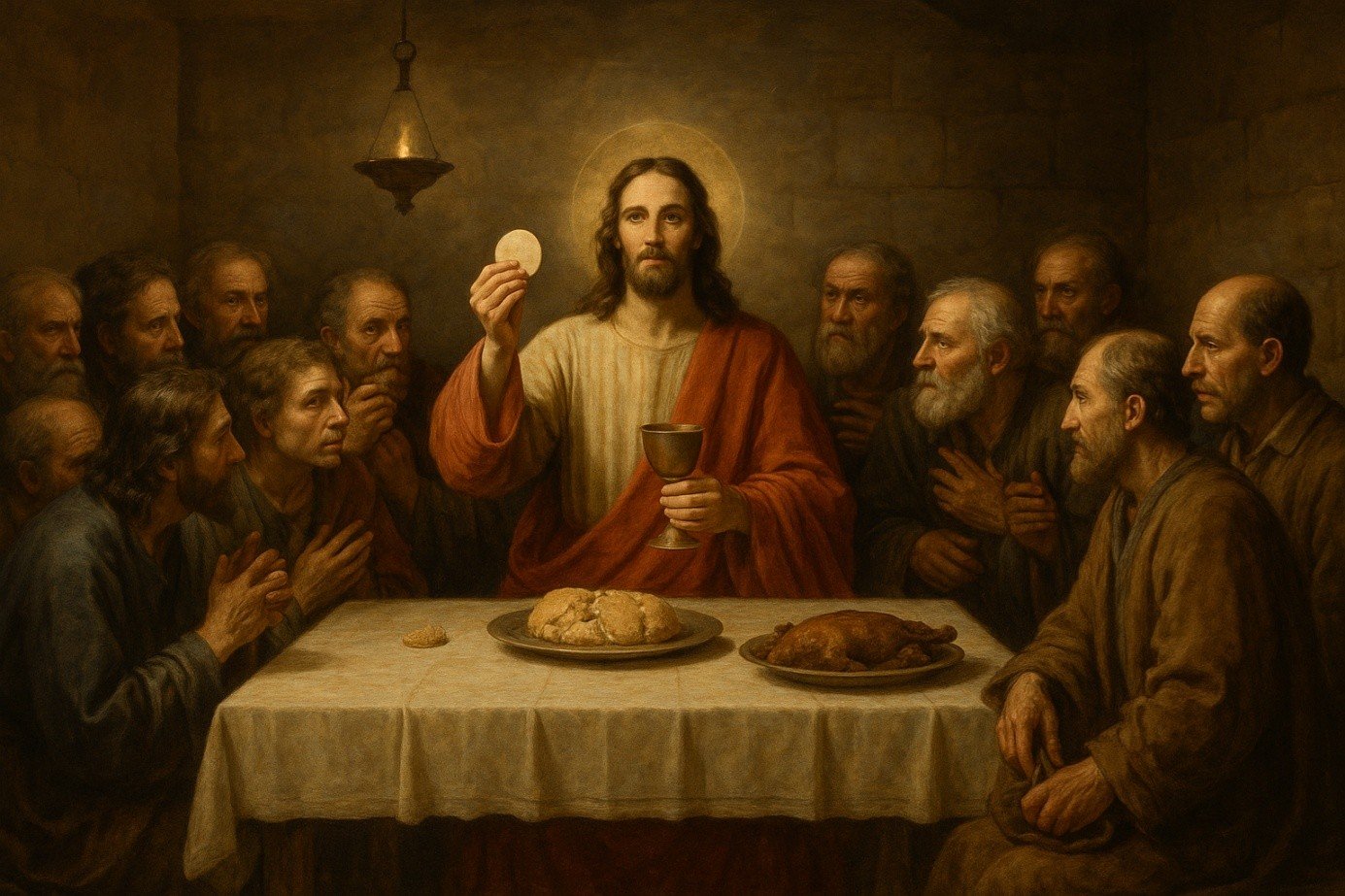
By F. Luis Casasus, General Superior of idente missionaries
Commentary on the Sunday Gospel of 14-7-2019, Fifteenth Sunday in Ordinary Time (Book of Deuteronomy 30: 10-14; Letter to the Colossians 1: 15-20; Saint Luke 10: 25-37)
What must I do to inherit eternal life? This is the question that the rabbi, a doctor of the Law, asks Jesus in today’s Gospel reading. This a very good question, and one that we should ask God every day. Of course, it is one thing to ask the question, another to receive the answer and a different thing is to implement the response in my life. Go and do likewise; it is not enough to know. It is life that proves if we have assimilated or not the word of Jesus.
The question about the eternal life is truly universal. Remember that a young rich man (Mk 10:17-30) asked the same question when Jesus was setting out on his trip to Jerusalem, on his way to die, to give his life for all men and women, for all time. In today’s text, perhaps the ecclesiastical lawyer was trying to disconcert Jesus, but he is pointing to something that each and every one of us has in us, and that is a strong and deep desire for fullness of life, for eternal life. At least, the scholar of the law went to the right source with his question. How often do we not go to Jesus because we don’t really want to know the truth?
Nonetheless, the question is appropriate and timely because it does not speak of “merit,” but of “inheritance”. Eternal life is not earned; we receive it completely free of charge. This is powerfully proclaimed by Paul in the Second Reading, where he emphasizes to the Colossians that salvation, eternal life, does not come from the Law, it comes from the forgiveness of sins brought about by faith in Christ’s death and resurrection. From the prison, he proclaims that Christ is the first in the new creation, because he conquered death and opened all the way to God. So he has subdued under his power the unseen forces of darkness, the mysterious spirits that the Colossians feared.
What about us? Although today we do not believe in the unseen forces that frightened the Colossians, we are victims of fear. You can call it anxiety about the difficulties ahead of you, preoccupation or stress, but we confront these realities in a form that separates us from people who are wounded near to us, we look like the Priest and the Levite in today’s parable. Paradoxically, preparing a homily, a talk or a spiritual lesson, working hard for the good of the family or the community and arranging many necessary meetings, could make us insensitive to the emotional and spiritual needs of the brothers near to us. Perhaps we do not want to get into trouble or get headaches, perhaps we have no time to lose…
Fear attacks us everywhere, anywhere, anytime and every time. The effects of fear are far-reaching and damaging to spiritual growth, it affects our apostolic life too. We may be afraid of facing new opportunities and new initiatives, afraid of failure and rejection, afraid of uncertainties, accidents and disease, afraid of people, of losing our status, …
Only the presence of Jesus is able to calm our anxieties and enable us to profess with Saint Thomas: My Lord and my God (Jn 20:28). Christ knows that each of us, just like the first apostles, has our personal secret room and locked doors.
Many of us, like the Colossians, are afraid of God because we do not know him well.
* Some fear God’s punishment. They should not be living in fear of God’s judgment because we have had our sins atoned for by Christ and our heavenly Father is always open to our repentance.
* Others fear that God demands too much of us.
But He offers to us a bearable yoke and a light burden (Mt 11:28-30), while He himself set his face toward Jerusalem and bore a cross (Lk 9:51).
Once upon a time there was a young girl whose father was a printer. He was printing the Bible. One day his young daughter found a scrap of paper that had fallen to the floor in the cutting room. The paper contained words from John 3:16, “God so loved the world that he gave…” but the rest of the verse was missing. She was intrigued by this statement. She read it to herself over and over, “God so loved the world that He gave.” She liked it so much that she kept it close to her heart and read it every day. She was raised to know that God was just, and Holy, that He hates sin and is angry with the sinner, but she had never read that God loved her so much that He gave…although she did not know what exactly He had given. This revelation brought such joy to her heart that she was singing, and her mother noticing the happy little girl asked, “What is the matter with you?” “Oh mother it is wonderful,” she said, pulling out the little sliver of paper. “Read what it says… ‘God so loved the world that He gave.’” “Gave what?” her mother asked. “I don’t know, but if He loved me enough that He gave anything at all, I will never be afraid of Him again.”
The rabbi who asked Jesus who was his neighbor was trying to set limits to his love, placing limits or conditions on love of neighbor. The Shema, the most important Jewish prayer, commands to love the Lord and neighbor. Some scholars of the Law said they had to love only the children of Abraham, others extended this love also to foreigners who lived long in the land of Israel. But all agreed in saying that the distant peoples and, above all, the enemies were not neighbors.
One of the astonishing teachings of the parable of the Good Samaritan is that Jesus, without explicitly saying so, teaches us that the true problem is NOT to determine which individuals I have to consider to be my neighbors, but how can I become a neighbor, how can I display the merciful conduct of God: Go, and do the same yourself.
This explains why Jesus says nothing about the identity of the man who was attacked by robbers. We do not know anything about him: neither age nor profession, nor the tribe to which he belonged, nor the religion he professed: The Samaritan became his neighbor.
He was a human being in need of help. For Jesus, this man is a symbol of all the victims of physical and psychological violence.
In our modern societies people live alone next to each other. One person is afraid to give, because of fear and old wounds, and then this person gets back what he sends out. Rejection creates rejection.
On the contrary, like a shepherd looking for a lost sheep desperately, like a woman searching frantically for her lost coin, God seeks out all those out who create mistrust, who wish to inflict violence and fear… even those who wish to inflict terror, on other human beings, whether physically, emotionally or spiritually.
Today’s First Reading raises the issue of how to know the will of God. And the Deuteronomy is already saying that the answer is not up in heaven nor is it beyond the sea. This is the first of the two keys we have been given: One is the Gospel, the personal life and teaching of Christ, and the other key is expressed in the attitude of the Samaritan: listening to our heart in a state of prayer. What God wants is what also our inner self asks. The law of God is born from our very nature as human beings.
If we do not let our hearts to be blinded by passions, we would always make choices in accordance with the will of God. His law, says the Deuteronomy, is not an arbitrary imposition of a master, but is an expression of what our hidden (sometimes buried) generosity asks us to do. This is a consequence of the (constitutive) presence of the divine persons in our heart.
For Christians the Law is brought to perfection in the incarnate Word of God, who is the perfect revelation of the Father, and is the Way, the Truth and the Life. Israel saw the revelation of God’s will, and so of his nature, in the Law; Christians similarly see the full revelation of the glory of God in Christ Jesus: Think not that I have come to abolish the law and the prophets; I have come not to abolish them but to fulfil them (Mt 5:17).
The Samaritan in the parable is usually called “the good Samaritan”, but he had probably his plans, interests, failures and sins. He was an ordinary Samaritan, but humble enough to listen to the voice of God in his heart: He was moved with compassion at the sight.
Many people who present themselves as atheists (or they are so called) may turn God down in words but in reality they are not rejecting God; perhaps they only reject his false image, maybe what they see in us, the believers. The Samaritans or atheists who love the brother and sister in need, without knowing it, are worshiping and being obedient to the true God. This is why encouraging young people to volunteer, to serve in simple things, in short, to come out of themselves, to live ecstatically, is so crucial.
Christian and perfected love does not mean always supplying what another person wants, being tirelessly accepting, and having no needs of our own. An immature and worldly view of love saddles us with the obligation to satisfy every need, soothe every sorrow, and comply with every material or emotional request. Of course, this is not the love which makes us free and obeys God’s will. But when we understand that the divine Providence places a person in our path, we can be sure that He is asking us to love him with all our heart, soul and strength, as the Samaritan did: He went over to him, and cleaned his wounds with oil and wine, and wrapped them in bandages. Then he put him on his own mount, and brought him to an inn, where he took care of him.
Jesus speaks to us through St. John Chrysostom’s writing:
I am not saying to you, solve all my problems for me, give me everything you have, even though I am poor for love of you. I only ask for some bread and clothes, some relief for my hunger. I am in prison. I do not ask you to free me. I only wish, that for YOUR own good, you pay me a visit. That will be enough for me, and I in return will make you a gift of Heaven. I have freed you from a prison a thousand times more harsh. But I am happy if you come and visit me from time to time.
The Gospel text affirms that the priest and the Levite happened to be going down that road, they bumped into the victim “by chance” or better, because the divine providence arranged it. In many cases, we need not go to look for the needy brother. The circumstances and coincidences make us encounter him. If we serve our neighbors, especially those experiencing some form of poverty or suffering, we will see the face of God: Beloved, if God so loved us, we also ought to love one another. No man has ever seen God; if we love one another, God abides in us and his love is perfected in us (1Jn 4:11-12).
There can be no love of God that does not express itself in love of neighbor. But note that, conversely, there is no authentic love of neighbor that does not spring from love of God, for otherwise it is a refined, subtle form of self-love.
The story of the Good Samaritan is not merely an account of the kind of life we should lead. At the deepest level, it is also a telling of the basic story of sin, fall, and redemption. All of us sinners are the man beaten up and left half-dead by the side of the road, and we cannot be saved by law or religion or our own works, but only by Jesus Christ and his grace.











